As someone who wears both hats—AI researcher and content creator—I’ve naturally been curious about the tools that claim to make our lives easier. With so many AI platforms out there, it’s easy to get overwhelmed. For a while now, two names have kept popping up in my workflow: DeepSeek and ChatGPT.
At first glance, both tools seem to offer the same thing—smarter and faster content generation. But after using them in different scenarios, I began to notice how differently they operate, and where each one shines (or falls short).
So, which one really delivers the most value? Is DeepSeek the smarter choice for data-heavy tasks? Or does ChatGPT win with its creativity and ease of use?
Let’s break it down and find out which tool might be the right fit for your needs.
How to Choose Between DeepSeek and ChatGPT?
It’s time to put DeepSeek and ChatGPT head-to-head. I'll compare their key features, use cases, and strengths to help you decide which AI tool suits your content creation or research workflow best.
User Interface & Ease of Use
In my opinion, there’s not much difference between these platforms' interfaces—both are intuitive and user-friendly.
ChatGPT leans into simplicity and accessibility. Its clean, chat-style design feels natural, even for beginners. You can type freely, ask follow-up questions, and get responses in seconds. It also offers model switching, tone customization, and prompt suggestions—ideal for fluid, creative interaction.
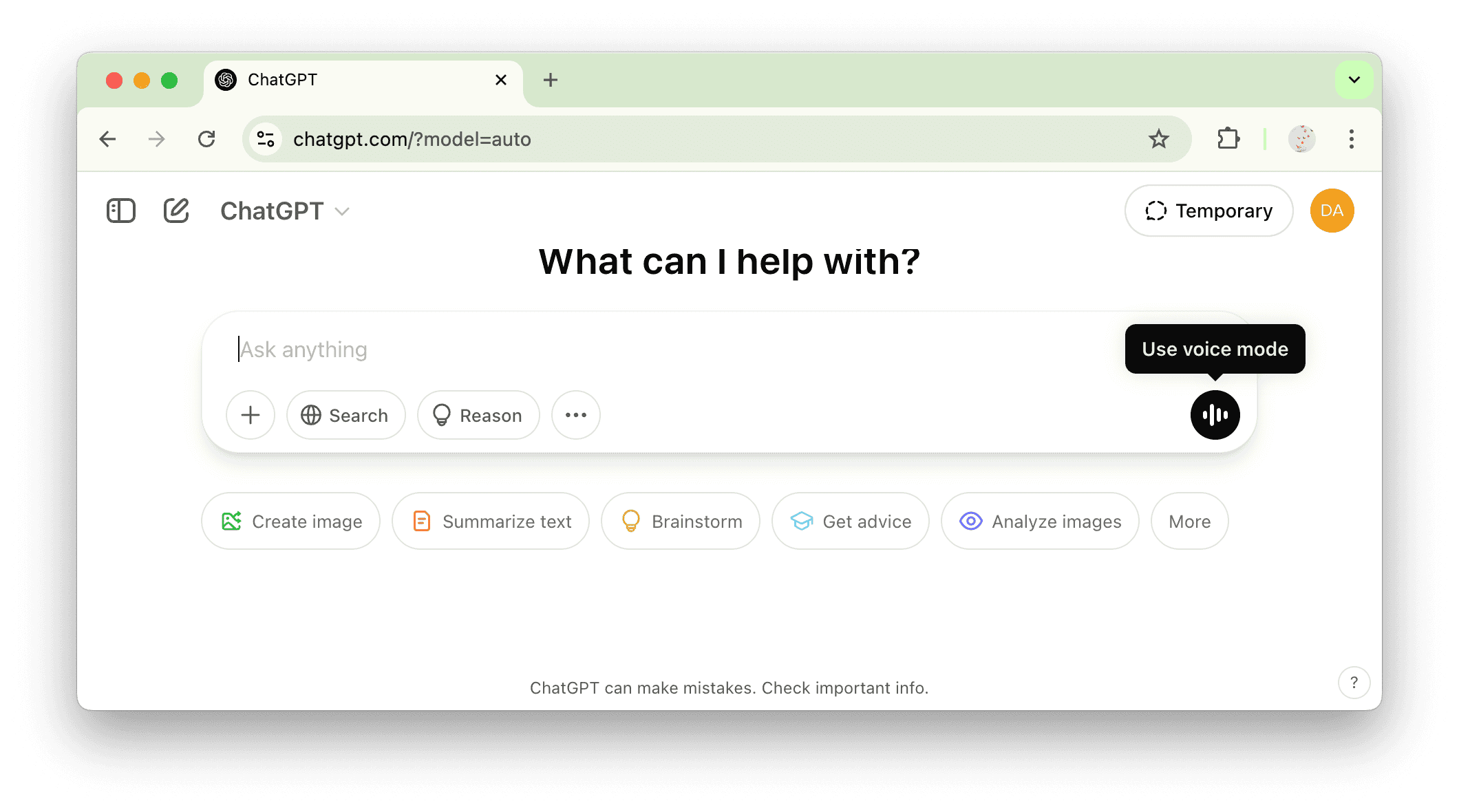
DeepSeek, on the other hand, presents a more utilitarian, research-oriented interface. It supports structured outputs, large-text analysis, and side-by-side comparisons. You’ll find options to filter results, upload and analyze large text inputs. It might take a bit more time to get comfortable with the DeepSeek layout, but if your tasks are data-driven, it's worth it.
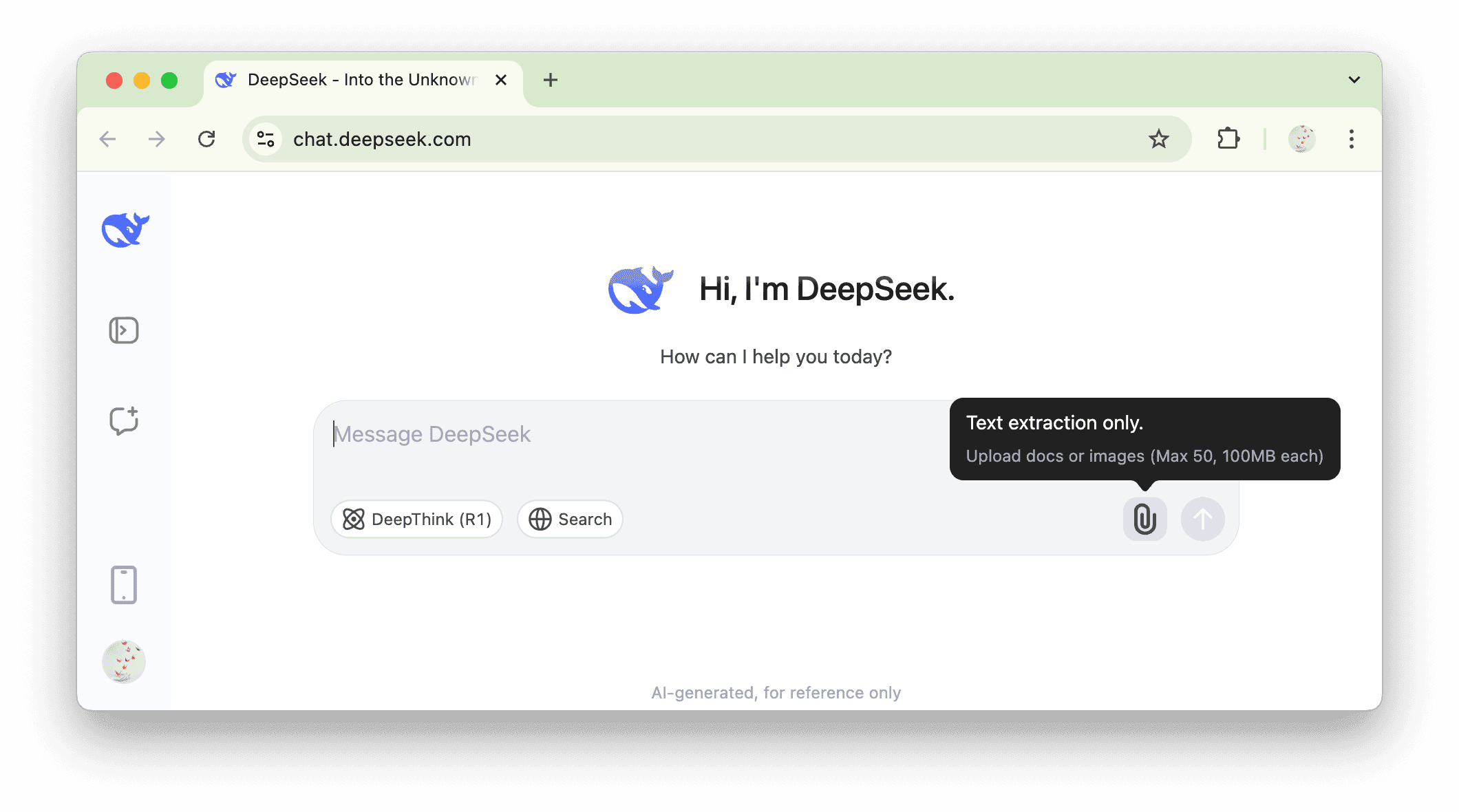
Features & Functionality
Now let’s look at what each tool actually offers under the hood.
| Feature | DeepSeek | ChatGPT |
|---|---|---|
| Challenging reasoning | ✔️ | ❌ |
| Scientific problems | ✔️ | ❌ |
| Coding problems | ✔️ | ✔️ |
| Drafting emails | ❌ | ✔️ |
| Advanced voice mode | ❌ | ✔️ |
| Custom instructions | ❌ | ✔️ |
| Memory | ❌ | ✔️ |
| Integrations | ❌ | ✔️ |
| Free plans available | ✔️ (full) | ✔️ (with limitations) |
ChatGPT is built for versatility. Need blog drafts, email templates, or help brainstorming? It handles it all with ease. The newer versions let you adjust the tone, expand or shorten answers, and remember your preferences over time.
Perfect for writers, marketers, and multitaskers. If you're a content creator juggling various writing tasks, ChatGPT is like having a creative co-pilot.
DeepSeek, by contrast, focuses on precision and structure. It’s particularly strong when it comes to tasks like summarizing research, parsing through documents, extracting insights, or organizing complex data. Less conversational, but unmatched for technical or analytical work.
DeepSeek is the perfect pick for researchers, analysts, or anyone needing clean, data-oriented results.
Need More Flexibility? JustDone Bridges the Gap
If you’re looking for a smart solution that combines the strengths of both DeepSeek and ChatGPT, JustDone is the perfect choice. With 130+ AI tools, JustDone allows you to generate and rewrite content, as well as conduct complex, data-driven research. Whether you need a well-written article, fact-checked research, or a quick summary, JustDone’s AI can guide you through the process effortlessly.
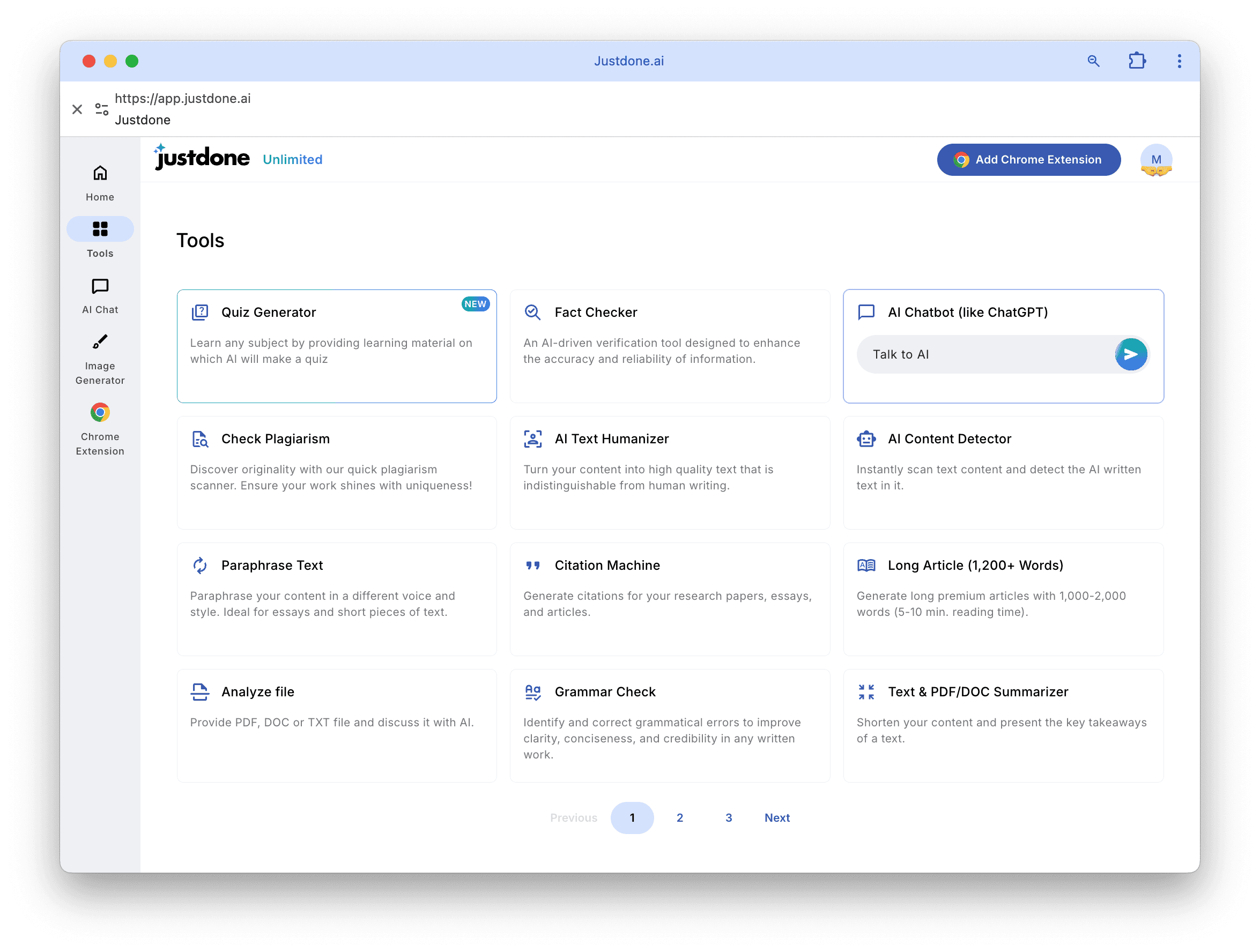
Performance & Output Quality
Speed and accuracy are key when working with AI, and here’s where the two tools start to differ a bit more.
ChatGPT tends to be fast and conversational. Its responses feel human-like, polished, and context-aware. It excels at generating text that flows naturally, making it ideal for storytelling, content writing, and brainstorming sessions. However, it occasionally sacrifice accuracy for creativity—especially in highly technical or factual content.
DeepSeek, meanwhile, puts accuracy first. Its outputs are a bit less conversational but often more structured and detail-oriented. It shines for precise summaries, citation-ready insights, or a breakdown of dense material. The downside? It lacks ChatGPT’s flexibility and “chatty”.
Summary & Recommendation
So, which one should you go with—DeepSeek or ChatGPT?
- Creativity, drafting, or marketing: ChatGPT’s natural flow and adaptability make it ideal.
- Research, data analysis, or technical work: DeepSeek’s precision and structure are unbeatable.
If your day-to-day tasks revolve around creativity, storytelling, or quick drafting, ChatGPT is an ease of use, natural responses, and flexibility make it a powerful companion for content creators, marketers, and anyone who wants a writing assistant that “gets it.”
On the flip side, if your work involves deep research, data-heavy content, or precise analysis, DeepSeek delivers where it counts. It’s built for structure and clarity, offering tools and outputs that are tailored to a more analytical mindset.
But here’s the thing: you don’t always have to choose. That’s where JustDone comes in. Think of it as a bridge between these two worlds—combining creative flexibility with productivity-enhancing AI features. Whether you’re generating fresh ideas, editing complex documents, or aligning content with strategic goals, JustDone gives you the tools to get it done, fast and professionally.
DeepSeek vs. ChatGPT: Key Takeaways
DeepSeek offers advanced search capabilities, making it easy to find specific content across multiple sources.
DeepSeek Pros ans Cons
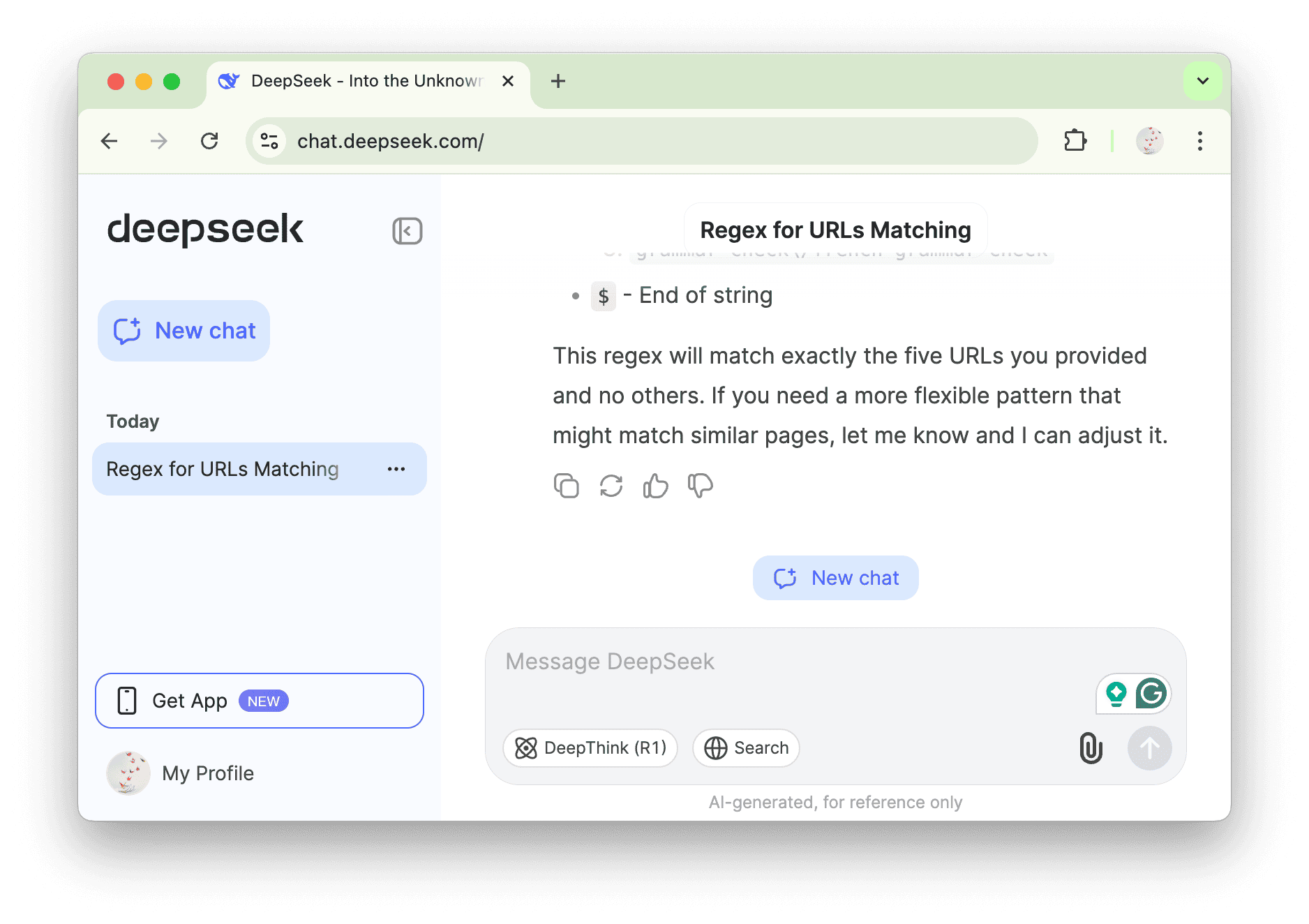
✔ Advanced search & multi-source data aggregation. The tool is great for researchers looking to quick data aggregation from various publications.
✔ Strong in summarization and complex analysis. DeepSeek’s AI algorithms allow for in-depth analysis and complex subjects summarization.
✘ Steeper learning curve for beginners. It may have a steeper learning curve for those unfamiliar with data aggregation tools.
✘ Slower with large datasets. When processing large datasets, DeepSeek’s performance can feel significantly slower.
✘ Limited support for rare/regional languages. Supports up to 100 popular languages but struggles with rare and regional dialects, languages with complex scripts (e.g., Ancient Greek or Sanskrit), and constructed languages (e.g., Esperanto or Klingon).
ChatGPT Values and Considerations
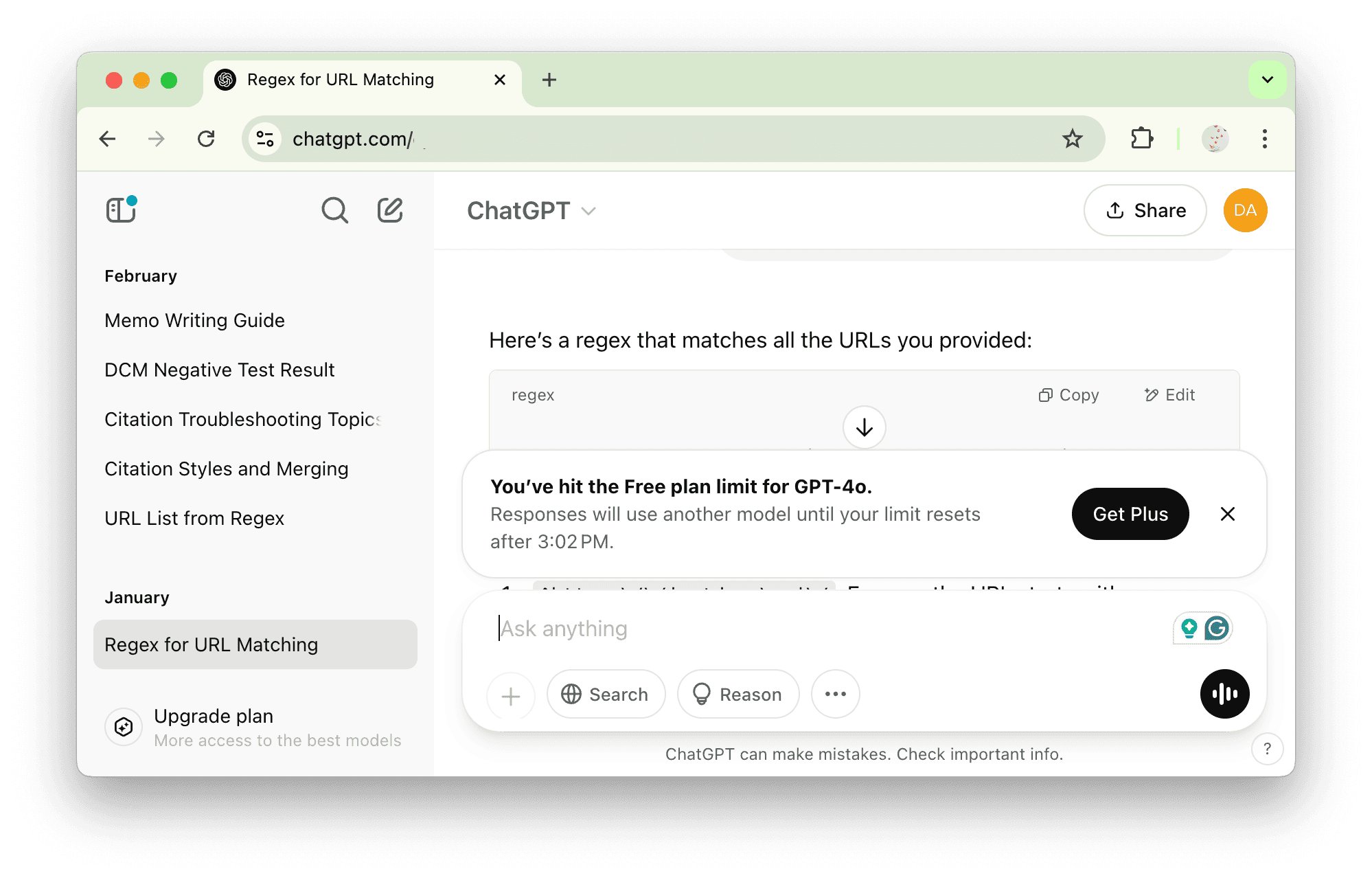
Pros:
✔ ChatGPT is ideal for content creators of all skill levels.
✔ The conversational interface allows for real-time interaction, providing instant responses to queries.
✔ ChatGPT excels at generating creative content such as articles, emails, and ads.
✔ Supports multiple languages, making it a great tool for overcoming language barriers globally.
Cons:
✘ Sometimes, the responses can be overly generic, lacking the depth that researchers may need.
✘ ChatGPT may struggle with highly technical subjects due to its generalized training data.
✘ The free version has limitations.
Is DeepSeek better than ChatGPT?
The "better" tool depends on your needs:
- Researchers/analysts: DeepSeek wins.
- Content creators: ChatGPT shines.
- Best of both worlds? Explore JustDone.
The verdict? Both tools excel in different areas—your choice should align with your workflow. Experiment, combine, and let your productivity soar. As you move forward, remember that platforms like JustDone are here to support your journey, providing innovative AI solutions that elevate your content creation process. Embrace the future of AI-assisted writing, and let your creativity shine!